House Intelligence Chair Says Renewal Of Ties Between Iran, Saudi 'Troubling'
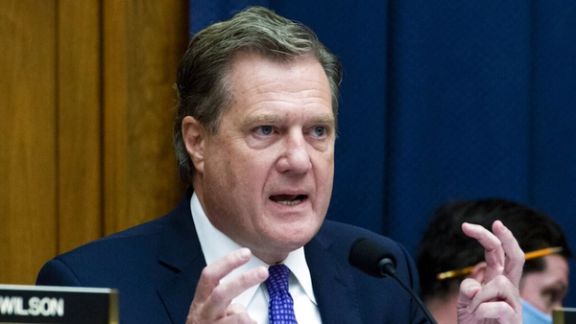
A committee chairman in the US House of Representatives says the Chinese-mediated agreement between Iran and Saudi Arabia to restore diplomatic ties is “very troubling.”

A committee chairman in the US House of Representatives says the Chinese-mediated agreement between Iran and Saudi Arabia to restore diplomatic ties is “very troubling.”
Michael R. Turner, Republican from Ohio has said in an interview with ABC News that it is disappointing to see Saudi Arabia look elsewhere except the US for support.
“I think that, of course, is a reflection on the Biden administration,” Turner said on Sunday, adding that “It’s not unexpected that [Saudi Arabia] might look elsewhere for support. It certainly is very unexpected and certainly very troubling and disappointing that they would turn to Iran.”
The Islamic Republic and Saudi Arabia agreed to re-establish diplomatic ties after Chinese-brokered talks in Beijing. Following five days of negotiations, it was agreed on Friday that the two countries will reinstate embassies and missions after seven years of no diplomatic relations and occasional tensions.
Saudi Arabia severed relations with the Islamic Republic in January 2016 after hardliner supporters of Supreme Leader Ali Khamenei formed mobs and attacked and ransacked its embassy in Tehran and consulate in Mashhad following the execution of a Saudi Shiite cleric.
Turner, who heads the House Intelligence Committee, further criticized the Biden Administration saying US officials have been slow to respond to Riyadh’s military needs.
“The Biden administration appears to be much too timid… in their approach to Russia… and I think even in China they are afraid to provoke,” Turner added. “They are absolutely emerging as a military threat to the United States. I think we need to respond and respond very strongly.”
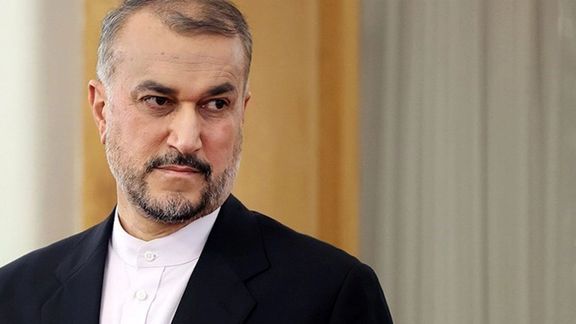
While Islamic Republic’s foreign minister says Iran and the US have reached a prisoner exchange deal, the Biden administration dismissed the claim as a “cruel lie.”
Iran’s foreign minister Hossein Amir-Abdollahian told state TV Sunday that “Regarding the exchange of current prisoners between Iran and the US, we have reached an agreement within the past few days. If everything goes well on the American side, I think we will witness a prisoner exchange in the near future. We see this as an entirely humanitarian case.”
A White House official immediately denied Amir-Abdollahian's statement about the prisoner swap, reiterating that the United States was committed to securing the release of Americans held in Iran. Amir-Abdollahian claimed that a document laying out the exchange had been “indirectly signed and approved” since early March 2022, without saying who would be exchanged in the prisoner swap.
One of several Americans held in Iran is Siamak Namazi, a businessman with dual US-Iranian citizenship, who was sentenced to 10 years in prison in 2016 on charges of espionage and cooperating with the US government. Emad Sharghi, another Iranian-American businessman, was arrested in 2018 when he was working for a tech investment company. Iranian-American environmentalist Morad Tahbaz, who also holds British citizenship, is a third prisoner.
US State Department spokesperson Ned Price told the AP that the comments are “another especially cruel lie that only adds to the suffering of their families.” “We are working relentlessly to secure the release of the three wrongfully detained Americans in Iran,” Price said. “We will not stop until they are reunited with their loved ones.”

A separate statement from a spokesperson with the White House’s National Security Council also called the remarks “false,” adding, “Unfortunately, Iranian officials will not hesitate to make things up, and the latest cruel claim will cause more heartache for the families of Siamak Namazi, Emad Shargi and Morad Tahbaz,” naming the three Americans held on trumped-up espionage charges. "Claims by Iranian officials that we have reached a deal for the release of the US citizens wrongfully held by Iran are false," the spokesperson said.
In recent days, Namazi was allowed to conduct an interview with CNN from Tehran’s notorious Evin prison — something that cannot normally happen in the Islamic Republic’s prisons.

Reuters cited a source briefed on the talks as saying that the prisoner exchange is "closer than it has ever been," but one of the remaining sticking points is linked to $7 billion in Iranian oil funds frozen under US sanctions in South Korea. "The logistics of how these funds will be exchanged and how oversight will be provided are unresolved," added the source.
The source also said that Qatar and Switzerland have been involved in the prisoner exchange talks.
The Islamic Republic, which is holding dozens of Iranian dual nationals and foreigners, has been accused by human rights organization of hostage diplomacy, trying to extract concessions from other countries. Tehran denies this and insists all foreigners are tried according to legal process. However, it has frequently shown readiness for prisoner exchanges and participated in swaps in the past.
Earlier in the day, Iranian media reported that Habib Chaab – also known as Habib Osaivad – an Iranian-Swedish political activist, founder and former leader of Arab Struggle Movement for the Liberation of Ahvaz, was sentenced to death for "terrorism" and "corruption on earth" by the judiciary. Swedish Foreign Minister Tobias Billstrom later on Sunday condemned the sentence as "inhumane," calling it an "irreversible punishment".
There are also reports that the Islamic Republic is ready for a prisoner swap with Belgium after the constitutional court in the European country upheld an exchange treaty. The Constitutional Court of Belgium rejected a request last week to annul the prisoner exchange treaty with the Islamic Republic signed last year that can lead to the release of Iranian diplomat Assadollah Assadi, convicted of terrorism, for Belgian aid worker Olivier Vandecasteele, held hostage in Iran.
Assadi, 50, a former attaché at the Iranian embassy in Austria, was convicted of plotting to bomb a gathering of the exiled opposition group Mujahedin-e Khalq Organization (MEK) near Paris on June 30, 2018. Iran says Nouri’s detention is driven by “false allegations” made by the MEK.
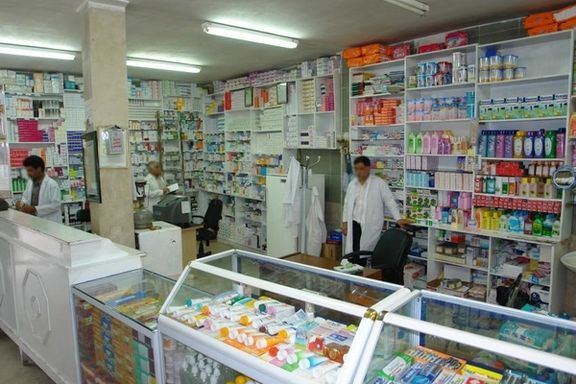
An Iranian lawmaker has warned about shortage of medicines, saying that "the financial resources foreseen in the budget bill for the next Iranian year are not sufficient at all."
Mehr state news agency quoted Hosseinali Shahriari on Sunday that due to insufficient financial resources, "we will face problems regarding medicines and medical equipment next year [beginning March 21]."
According to the Iranian parliamentarian, "officials do not have accurate statistics on medicine supplies, and there is constant shortage of even ordinary drugs."
In current Iranian year, ending March 20, the medicine crisis intensified as people witnessed multifold increase in prices. The government scrapped an import subsidy for food and medications last year.
Iran’s rail fell to more than 600,000 in late February from 300,000 in late August. Although the national currency bounced back in the past ten days it is still down 50 percent compared to six months ago.
Parallel markets including gold, gold bullions, and even vehicles, both domestically produced and foreign made, will immediately reflect the change with higher prices. Essential food items, such as red meat, have already risen to unprecedented highs, making them unaffordable to the majority of people.
Based on a bill approved by the parliament, drug prices were supposed not to increase this year, but according to the head of the parliament's health commission, "this did not happen and the price of many drugs, especially those for diabetic and cardiovascular diseases soared and patients' out-of-pocket payments increased accordingly."
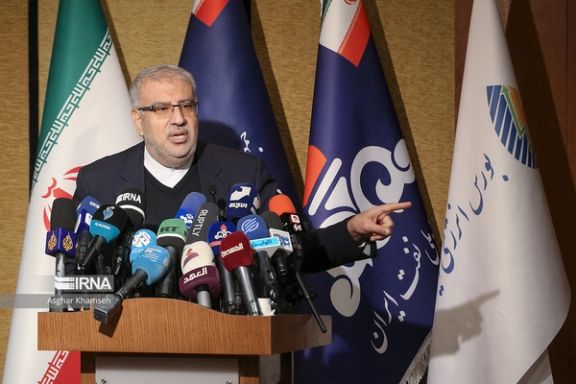
Iran’s oil minister Javad Owji said Sunday the country’s exports are at its highest point since 2018, claiming that $14 billion of oil revenues has been injected into the economy.
His claims come at a time when Iran is is serious need of hard currency, with its national currency extremely weak and volatile.
The oil minister boasted that the country has achieved the new record in exporting oil despite the US sanctions following the US pullout from the 2015 nuclear deal and imposition of all-out measures. Owji claimed that since 2018 when the Trump administration re-imposed sanctions on the Islamic Republic, more and more punitive measures have been put in place as European states, insurance companies, shipping companies, ports and other trade mechanisms are abiding by the US sanctions.
He said that despite the measures, the oil ministry has injected $14 billion into the country’s foreign currency trading services in the past 11 months. He added that Iran’s oil exports have increased 190 million barrels compared from two years ago -- from March 2020 to March 2021 -- and 83 million barrels more that the figure of the previous Iranian year, which ended in March 2022. "We exported 83 million more oil barrels since 21st March 2022 compared to the same period last year. This represents 190 million more oil barrels exported compared to the period March 2021 to March 2022," he said.
But bringing back $14 billion from oil exports is a fraction of what Iran needs to balance its budget, without taking into account secret military expenditures and assistance to its proxy forces in the region. Generally, an annual oil export revenue of $60 billion is considered the minimum for Iran to keep its finances afloat.
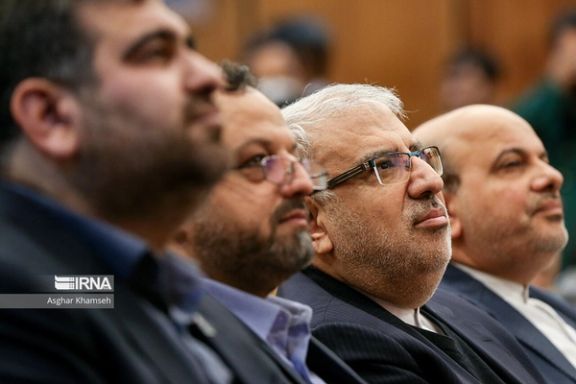
Owji did not disclose the exact number of barrels exported by the country but most of its exports go to Chinese small refineries, but it is not clear how much they pay per barrel or whether they pay in hard currencies to Iran or barter the oil with goods. Iran does not reveal how much it earns from crude oil exports, but if we take the lower estimate of 0.6 million shipments p/d and an average price of $90 p/b for 2022, revenues should total $20-22 billion for the 12 months of 2022.
While many oil industry sources say Iran exports around one million barrels of crude per day, others believe the volume is much less and the income modest.
TankerTrackers, Vortexa, Kpler, and other sources estimate Iran exported anywhere from 810,000 to 1.2 million barrels of crude oil per day in recent months. Iran keeps the export volume secret, but top officials constantly claim revenues are increasing.
In recent days, Iran’s currency rial has gained against major international currencies after a political rapprochement with Saudi Arabia that unlocked diplomatic channels between the two countries after seven years. The rial closed at over 450,000 against the US dollar on Saturday, up from a historic low of 600,000 in late February.
Elsewhere in his remarks, Owji also claimed that the Islamic Republic and Saudi Arabia will bolster their cooperation in the framework of OPEC. The CEO of Saudi Arabian Oil Group -- or simply Aramco -- Amin H. Nasser says Saudi-Iran agreement to mend relations will enhance regional stability and have a positive impact on the global oil market.
He said spare capacity remained tight at 2 million barrels per day, while demand for jet fuel was increasing alongside China's re-opening from tight Covid restrictions.
"If you consider China opening up and a pick-up in jet fuels and very limited spare capacity, we are talking 2 million barrels, so as I said we are cautiously optimistic in the short to midterm and the market will remain tightly balanced," he said.
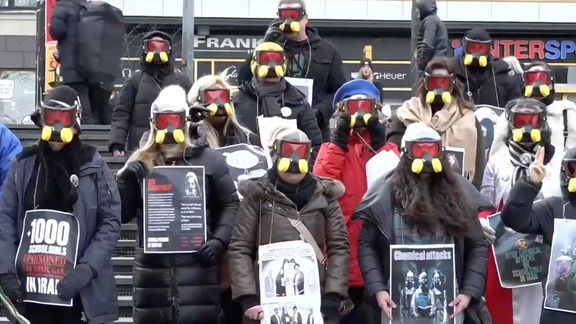
Demonstrations took place across the United States and Canada on Saturday to condemn the more than three months of chemical attacks on girls’ schools around Iran.
The United States is home to the world's largest Iranian community outside the country with almost 400,000 living there.
The Iranian diaspora led rallies in cities including New York and Washington, where hundreds of participants marched in front of the White House to demand the support of the US government and the international community for the protests inside Iran.
Similar events were also held in San Diego and Philadelphia. In Canada, Iranians joined forces in Montreal, Ottawa, Toronto and Vancouver to show solidarity with the hundreds of girls affected by mysterious chemical attacks in scores of schools across the country since November.
In Toronto, protesters held a rally in front of the Parliament of Ontario province, chanting slogans to censure the attacks on schoolgirls in different cities of Iran including Tehran, Qom, Karaj, Boroujerd, etc.
The government has aired ‘confessions’ of those allegedly responsible for the attacks which started three months ago as a man and his daughter forced to speak to national TV. The broadcast has all the trademarks of the regime’s forced confessions.
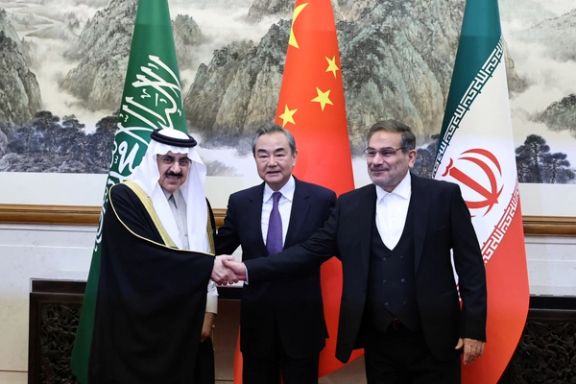
Saudi Arabia will watch Iran's behavior during the two-month window agreed upon to restore relations, Saudi columnists said on Sunday.
The opinion reflected continued wariness in the longtime rivalry between the region's Sunni Muslim and Shi'ite powers.
The breakthrough on Friday brokered by China, a major trade partner of both countries, followed several rounds of Saudi-Iranian talks held in the region in a bid to contain tensions, at a time of frustration by Saudi Arabia and regional allies over what they perceive as gradual US disengagement from the region and negotiations with Iran.
Tehran and Riyadh said they had agreed to resume diplomatic relations and re-open embassies within two months, adding that their foreign minister would meet to implement the deal, without mentioning a more detailed timeline.
"The two-month period ... is the first test of Iran's credibility and proof of good intentions as we must see the start of real change in the regional landscape and a real correction in its dealings with the Kingdom," Saudi columnist Hamoud Abu Taleb wrote in Okaz, a Saudi daily.
A main source of tension is Yemen, where Riyadh leads a military coalition that has since 2015 been battling the Iran-aligned Houthi movement -- which has during the war launched missile and drones at the kingdom.
Abdullah al-Otaibi, in an Op-ed in Saudi-owned Asharq Al-Awsat newspaper, agreed the timeline to reopen embassies would "test" Iran's commitment and said Beijing could play a more effective role than "failed" Western efforts with Tehran.
Persian Gulf Arab states have grown increasingly disillusioned with key ally and security guarantor the United States, including over global powers' 2015 nuclear pact with Iran which they deemed flawed for not tackling Iran's missile program and proxies.
Since the news of the Iranian-Saudi deal broke on Friday, many commentators have seen the development as a win for China that brokered the agreement.
The Wall Street Journal in an editorial blamed Biden and the Democrats for annoying the Saudis and pushing them into China’s arms. The Journal said, “the symbolic import is hard to miss as Democrats in Washington do everything they can to harass and annoy the Saudis,” adding that getting a cold shoulder from Washington Riyadh decided to “hedge” its bets.
Saudi Arabia and the United Arab Emirates have moved to assert more control over regional stability by pursuing conciliatory foreign policies they hope will allow them to focus on economic priorities.
The Wall Street Journal and the New York Times reported this week that Saudi Arabia is demanding concessions from the Biden administration to join the peace accords with Israel. It wants US assistance in developing a nuclear power industry and less restrictions on arms sales to the kingdom. Many see the Chinese-brokered deal with Iran as further pressure by Riyadh on both the United States and Israel.
"It is natural to have diplomatic ties even if at a low level because Iran's expansionist approach has created many touch points with Saudi Arabia....(But) we have to keep our eyes open," wrote Saudi columnist Tariq al-Homayed.
"China is the guarantor for this agreement. This will be important if Iran does not comply," he added.
The United States has voiced reservations about deepening ties between Persian Gulf states and its economic rival China, whose president attended a Gulf summit in Riyadh last year at a time of severe strains in the strategic US-Saudi relationship.
Riyadh and Abu Dhabi have repeatedly said they are looking to diversify their strategic partners while pressing Washington for concrete commitments to regional security.
With reporting by Reuters